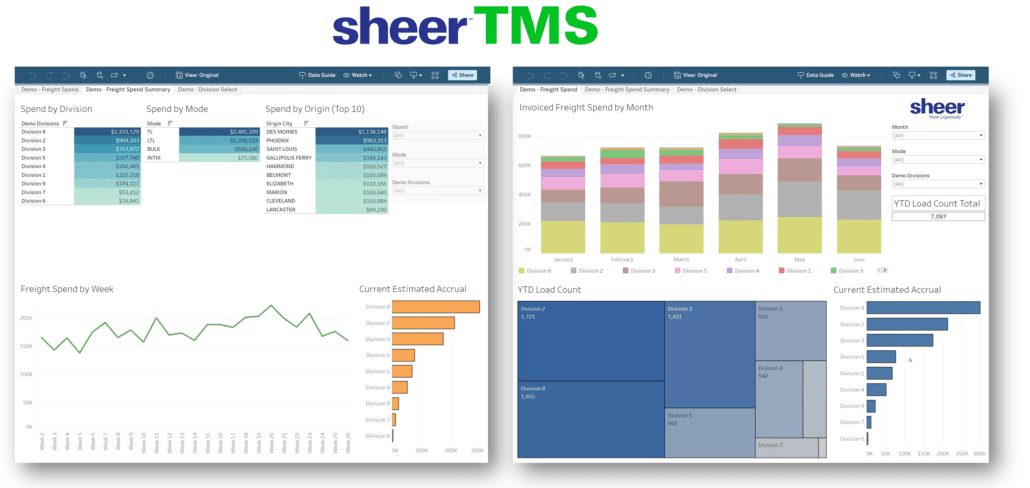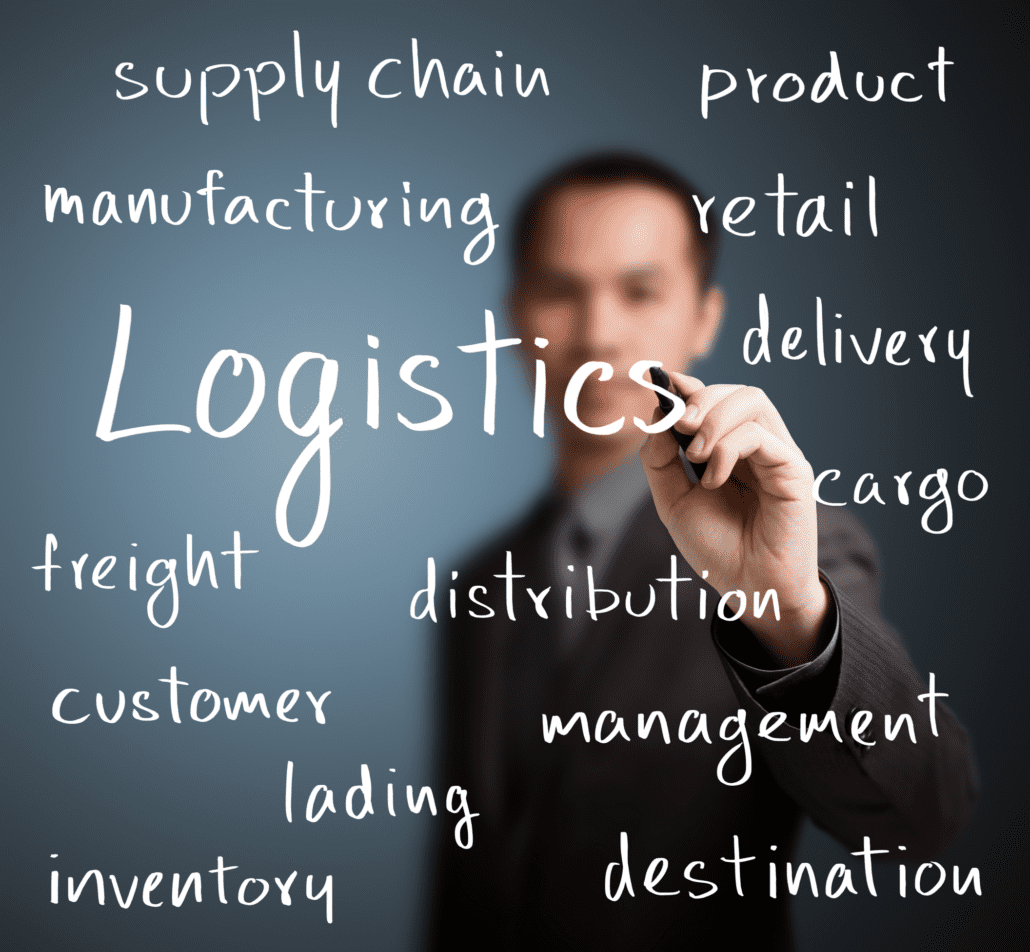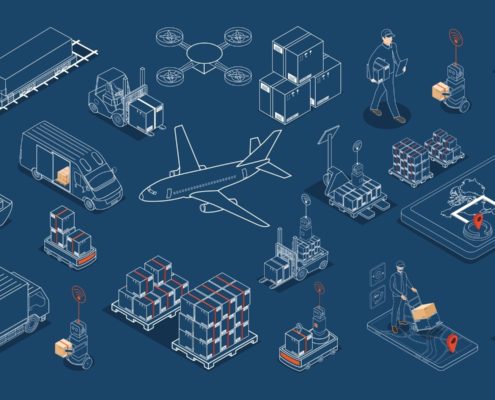
Logistics Service Providers (or LSPs) come in many shapes and sizes. Broadly speaking, an LSP is any logistics company or organization that specializes in managing or coordinating various aspects of the supply chain. The primary function of LSPs is in efficiently and effectively facilitating the transportation of goods from one point to another. Of course, there are many other adjacent and support services that LSPs provide which relate to the core transportation function.
My career in logistics management has afforded me the opportunity to work with and for a wide variety of LSPs. In this blog, I’ll explore the various types of service providers, the services they offer, explain why clients (often shippers but sometimes the destination receiver of a shipment) partner with LSPs and what to look for when choosing an LSP to support your logistics and supply chain needs.
Logistics Service Providers Explained
The rise of globalization in the mid-20th century kicked off a dramatic growth trend in the logistics and supply chain industry that is still ongoing today. Shippers are competing in a global marketplace, and today’s supply chains span the globe, ushering in an era of increasing supply chain complexity. Whereas in the not-too-distant past all that was required to transport goods to market was a reliable team of horses and a sturdy wagon, modern clients are continually challenged to devise strategies to source, manufacture, store, transport, and deliver goods across multiple channels spanning international borders. The advent of ecommerce businesses has spawned a heightened need for logistics and transportation services, particularly warehousing, fulfillment, last-mile delivery and reverse logistics.
The more recent trend of supply chain digitalization has further heightened the competitiveness of the global logistics market and accelerated the complexity of supply chains while also offering clients the promise of technology-driven logistics solutions that until only recently belonged to the realm of science-fiction. These trends have given rise to a menagerie of LSPs that have proliferated to solve the growing list of challenges businesses face.
Types of Logistics Service Providers
While every supply chain professional has heard of and likely worked with a third-party logistics provider (3PL) at some point, there are several different kinds of LSPs in the logistics industry today. Understanding their unique functions is essential to selecting the right service provider for your supply chain challenges.
First-Party Logistics Service Provider (1PL)
While not a commonly used term, First-Party Logistics, or 1PL, refers to shippers that manage their own logistics operations internally rather than partnering with or outsourcing their logistics and transportation needs to outside providers. Shippers that fall into the 1PL category handle all aspects of their logistics and supply chain functions internally, including managing a private transportation fleet, warehousing, and other functions. 1PLs are uncommon in today’s logistics landscape.
Second-Party Logistics Service Provider (2PL)
The moniker second–party logistics, or 2PL, is sometimes used to refer to transportation providers, more commonly referred to as “carriers.” This category includes trucking companies, ocean carriers, rail operators, and air cargo carriers. The majority of these companies focus primarily on providing transportation services, although some may offer other more comprehensive logistics services beyond transportation.
Third-Party Logistics Service Provider (3PL)
Third-party logistics, or 3PL, broadly refers to any third-party entity delivering logistics and/or transportation services that is distinct from the shipper or the carrier. One need only glance at the growth of the 3PL industry to grasp how integral 3PL companies have become to the global supply chain. The global 3PL services provider market was estimated at totaling $54B in 2000; today, the market is estimated at $1.26T and is expected to continue to grow at a CAGR of 5.48% over the next five years. This astonishing growth curve is a reflection of the increasing array of services and solutions provided by 3PLs. The majority of 3PLs are focused on providing transportation services, such as Truckload brokerage. Many 3PLs provide warehousing, distribution, freight forwarding, customs brokerage, or other value-added services. For a deeper dive into third-party logistics companies, please check out my blog “What Is a 3PL?”
Fourth-Party Logistics Service Provider (4PL)
Fourth-party logistics providers, or 4PLs, act as a single point of contact that oversees a shipper’s entire supply chain, often managing multiple 3PLs on behalf of their shipper customers. Also sometimes referred to as Lead Logistics Providers (LLP) or Managed Transportation Services providers, these companies provide a strategic and comprehensive approach to supply chain management, going beyond the management of individual logistics functions such as transportation or warehousing, instead focusing on integrating the entire logistics operation. To learn more about the services 4PLs offer, please read my blog, “What Is A 4PL?”
Fifth-Party Logistics Service Provider (5PL)
Fifth-party logistics, or 5PL, is a relatively new term that has yet to coalesce into a commonly used definition. It can be used to refer to an LSP that manages 3PLs and 4PLs on behalf of a shipper. 5PL can sometimes refer to LSPs that manage the entire supply chain on behalf of a shipper and seek to find efficiencies and synergies between the supply chains of common customers. Some definitions specifically call out the use of an added technology layer as part of the solution offered by 5PLs, however, many 4PLs utilize technology, particularly integration middleware, to deliver services and solutions to clients. Like much of the logistics and supply chain industry, the concept of 5PLs is an evolving one.
Key Services Offered by LSPs
Logistics service providers offer a wide variety of services to help clients efficiently and effectively manage their supply chain operations:
Transportation Management
LSPs manage shipments from origin to destination utilizing various modes of transportation, including truckload, LTL, rail, intermodal, ocean, and air. LSPs can manage every step of the logistics process, including planning, carrier selection, carrier procurement, freight brokering, shipment tracking and more.
Warehousing and Distribution
LSPs can help clients identify warehouses, distribution centers and fulfillment centers that are strategically located and aligned with the goals and needs of their business. LSPs oversee warehouse operations on behalf of their clients, providing services including warehouse management, receiving, storage, order fulfillment services, order picking, packing, labeling, and shipping.
Inventory Management
In addition to providing Warehousing and Distribution services, some LSPs offer inventory management solutions. Using specialized technology, these LSPs can track inventory levels, monitor stock movements, and forecast demand to optimize inventory levels and minimize carrying costs.
Freight Forwarding
Typically focused on international freight, LSPs can serve as intermediaries, arranging the transportation of goods via a variety of modes, while also handling documentation, customs, consolidation and coordination. To learn more about freight forwarding, please check out my blog post, “3PL vs. Freight Forwarder: What Is The Difference?”
Supply Chain Consulting
In addition to the services above, LSPs can provide logistics consulting services such as supply chain strategy, network design, process optimization, technology integration and performance measurement.
Why Businesses Partner with Logistics Service Providers
The overall goal of partnering with a Logistics Service Provider is to improve supply chain operations and overall business performance. LSPs provide many offerings that can help clients achieve these goals:
- Expertise: In partnering with an LSP, clients can gain access to experts with deep experience and specialized knowledge in logistics and supply chain management, including transportation, warehousing and distribution, inventory management, logistics technology, and other essential functions.
- Optimizing Costs: This expertise translates into cost savings by optimizing transportation modes and route planning, shipment consolidation, optimizing inventory, and more.
- Scalable and Flexible Solutions: Building and maintaining an internal logistics function can be costly and challenging, particularly as your business needs change. An LSP can help clients manage the fluctuations in their supply chain by providing flexible resources that can quickly scale up or down depending on seasonality, business growth, or other factors without requiring the shipper to make costly investments in infrastructure or resources.
- Technology: LSPs can provide specialized technology, such as Transportation Management Systems and Integration Platform as a Service (IPaaS) technology that can connect and streamline disparate systems. LSPs can also provide clients access to Real-Time Transportation Visibility Platforms (RTTVP), analytics, and other logistics technology platforms.

- Breadth of Network: LSPs maintain relationships with a wide network of transportation providers, warehousing facilities and other service providers that they can leverage on your behalf.
- Strategic Focus: By leveraging the services of an LSP, you can free up your internal resources to focus on the core competencies and strategic priorities of your business.
Factors to Consider When Choosing an LSP
Selecting a partner to manage critical aspects of your logistics and supply chain operations is not a decision to be made lightly. Here are some important factors to consider:
- Define Your Goals and KPIs: Before engaging an LSP, it’s critical to define the goals you are seeking to achieve and how you will measure progress, as these will guide your decision-making process with regards to finding a partner that has the right mix of services, expertise, and technology. It’s also critical to gain internal buy-in and alignment on goals and KPIs to ensure a smooth partner selection process.
- Evaluate Service Offerings: In addition to ensuring that the LSPs services align with your needs, also consider how your needs may change in the future, and whether the provider has the capabilities to evolve with you as your business needs change.
- Request a Technology Demo: Take a deep dive into the LSP’s technology ecosystem to get a feel for their capabilities. It may also be helpful to consult third-party resources, such as analyst assessments and user reviews.
- Look for Personalized Customer Service and Support: Clients sometimes opt to partner with larger LSPs, on the assumption that their size is reflection of their success, and that a larger LSP is a “safe bet.” But in some cases, clients find that they are a “small fish in a big pond,” and that larger LSPs don’t give them the attention they need. Look for LSPs that offer dedicated account management teams and support resources, and be sure to ask about response times, after hours and weekend support, and technical support resources.
- Assess Cultural Fit: Clients sometimes find that their organizational culture and the culture of their LSP don’t mesh. Investing time upfront to meet with as many of the LSP’s team members as possible can help you assess whether your organizations will work together seamlessly.
- Ask For References: A reputable LSP will be happy to provide the contact information for satisfied customers. Reaching out to these customers can give you an opportunity to pose challenging questions and help you validate whether the LSP is right for you.
- Compare Costs: Different LSPs will structure their pricing in different ways, with varying approaches to fixed and variable costs. Comparing pricing models and how they align to the current and anticipated future states of your business is essential to finding the right partner.
Partnering with a Logistics Service Provider (LSP) can significantly enhance your company’s supply chain operations and overall business performance. LSPs offer a wide range of services, including transportation management, warehousing and distribution, inventory management, freight forwarding, and supply chain consulting, to help clients efficiently manage their logistics needs. When selecting an LSP, it’s crucial for clients to define their goals and KPIs, evaluate service offerings, request technology demos, prioritize personalized customer service and support, assess cultural fit, ask for references, and compare costs. By carefully considering these factors and selecting the right partner, clients can optimize their supply chain operations, achieve their business objectives, and ensure customer satisfaction. To learn more, please contact Sheer Logistics today.
Whether you need full logistics management, carrier sourcing, or help with any part of the logistics process, Sheer Logistics delivers industry experts and cutting-edge technology that deliver bottom-line results.













